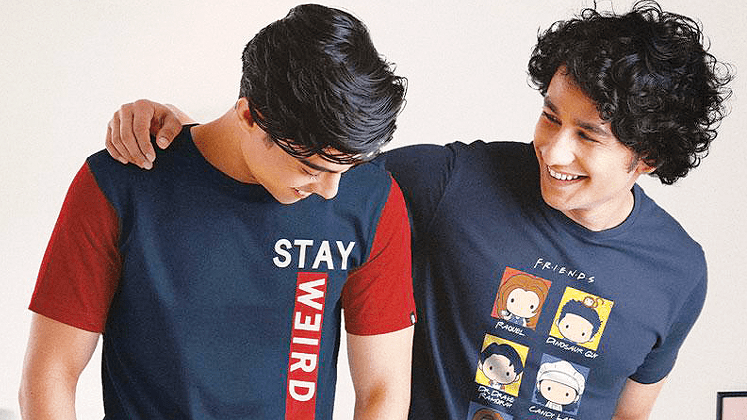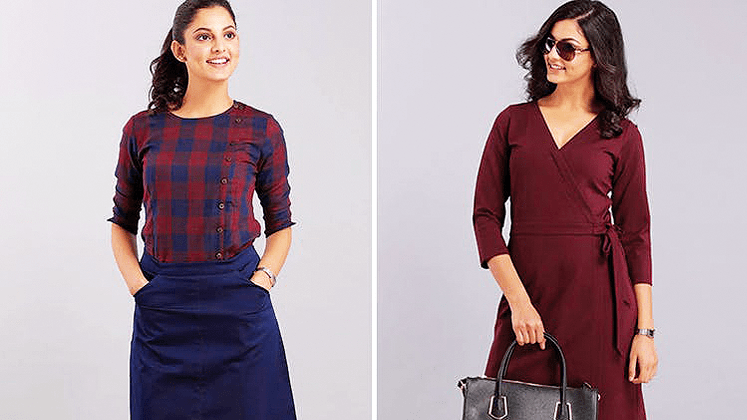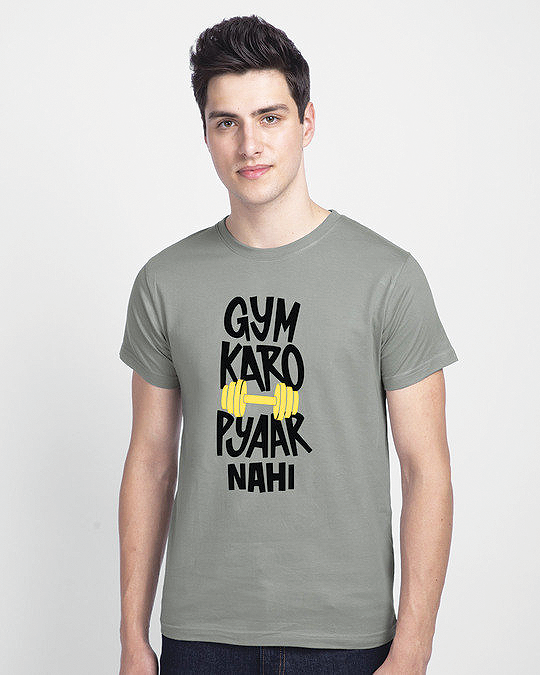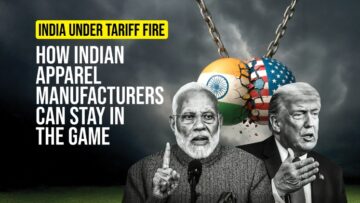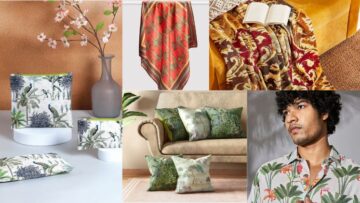India is a country with over 700 million internet users and it is a no-brainer that start-ups are continuously innovating and integrating technology in their operations and offerings have seen a rapid surge in terms of their growth and other prospects. And what has been faring really well in the country is direct-to-consumer model with small brands using it for survival and to thrive in a market dominated by giants. There are around 600 D2C brands in India and the number is continuously growing with more start-ups launching in the D2C category.
E-commerce websites, combined with better and seamless logistics operations and increased internet users, changing consumer shopping behaviour are few factors enabling Indian start-ups to reach out to their customers directly and easily. Even as the pandemic affected the overall economy and all the sectors in 2020, the year 2021 started well for the D2C space with investors being quite bullish about the segment, backed by e-commerce growth. A report by PGA Labs and Knowledge Capital said that investors had put in US $ 1.4 billion into D2C companies between 2014 and 2020. According to Avendus, India is witnessing the rise of D2C brands across categories and is estimated to have a US $ 100 billion addressable market by 2025. Also, more than 16 D2C brands in India have an annual turnover of more than US $ 60 million.
It is indeed interesting to see how consumers have started flocking to newer brands that are emphasising more on trust, brands messaging, direct communication and convenience, etc., even with no physical presence at all. Also, D2C brands have managed to cope much better than the traditional brands due to minimum dependence on external distribution networks and channels.
Also Read: How Veirdo plans to reach Rs. 150 crore by 2023; AR Interview with Dhaval Ahir, Co-founder
While the D2C segment has been seeing start-ups and brands emerging in key segments like fashion, home & decor, consumer electronics, FMCG, among others, there’s no doubt that fashion has been the most lucrative category right now, not only from the perspective of the consumer base but also from the point of funding outlook. Fashion brands have secured the most funding (US $ 876.2 million) among D2C brands with 65 unique fashion start-ups bagging investments. Here are few of these able and successfully running fashion start-ups ruling on the back of D2C model.
The Souled Store
The Souled Store was founded by Vedang Patel, Rohin Samtaney and Aditya Sharma in 2013, with a simple idea, to build a small but profitable e-commerce company focused on licensed merchandise. “We started with Rs. 500,000 of our personal savings and paid Rs. 20,000 to our friends to build the website. I have always been a fan of Star Wars and the like. Their merchandise was not easily available in India at the time. Even if it was, it was very expensive. I felt I could easily do this in India. There are a lot of fans in India, so there’s a definite market,” said Vedang Patel.
Today, The Souled Store has tie-ups with all the top franchises – Marvel, DC, Harry Potter, Star Wars, IPL, and more and the e-commerce platform has 2.2 million monthly visitors, over 150 official merchandise options and more than 1,000 designs. In November 2018, the D2C brand received a funding worth Rs. 21 crore (US $ 3 million) from venture capital firm RP-SG Ventures Ltd. The brand is looking to continue growing its turnover as it hits the Rs. 100 core mark by the end of the fiscal, on the back of improving consumer sentiment and popularity of D2C segment in the recent times.
“We are looking at a new round of fundraising, say to the tune of Rs. 75-100 crore which will facilitate the scaling-up in operations of the brand. Our prime focus will also be on marketing. This apart, we need to rework the supply chains and improve warehousing in order to further speed up deliveries. Our target is Rs. 1,000 crore over the next four years,” Vedang Patel maintained. In 2018, The Souled Store opened three offline stores with the aim of boosting its offline marketing presence.
FableStreet
Launched by Ayushi Gudwani in 2016, FableStreet is a tech-enabled, premium workwear brand for women offering timeless, versatile pieces, with fits tailored for your body measurements. The D2C start-up’s unique algorithm ensures that every woman looks stylish and feels comfortable irrespective of the size or shape of her body. Ayushi Gudwani informed, “I used to travel abroad frequently when I was working as a Consultant with McKinsey and Co., and it is then I realised that there aren’t enough options available for premium workwear for women in India. More so, the fits available within India were international sizes and did not work for Indian body shapes. I even ended up picking clothes for myself from stores and brands abroad, and this is how I found this to be an interesting market to look into and launch a business back home once I left McKinsey.”
FableStreet is a digitally native brand which started selling on its own website clothes in pre-existing sizes from XS-XL as also customised pieces, tailored specifically for the customers’ shape and size. Over time, the brand started selling on marketplaces like Myntra, Ajio, Nykaa and later in 2019, it launched its offline store in DLF Promenade, New Delhi. This workwear start-up raised Rs. 21 crore in December 2019 in Series A from Fireside Ventures, which it used to expand its operations, add product categories and hire senior professionals and it is also planning to invest in artificial intelligence and machine learning to build a customer recommendation engine, strengthen product development and set up a tech-enabled efficient supply chain.
Bewakoof
Direct-to-consumer fashion brand Bewakoof was founded by Prabhkiran Singh and Siddharth Munot in 2012 as contemporary apparel and accessories brand for the youth. It sells over 20,000 units of apparel and accessories a day and has a customer base of over 10 million, most of whom are millennials based in Tier-1, Tier-2 and Tier-3 cities. The online fashion retailer raised Rs. 30 crore from homegrown venture capital fund IvyCap Ventures in March 2021 and is eyeing another Rs. 222-296 crore by the end of FY ’21. It is using the funds to improve branding and technology, as well as launch new product categories.
Bewakoof has had two rounds of funding so far—Rs. 80 crore in October 2019 and Rs. 8 crore in May 2020. The fashion start-up clocked revenues of more than Rs. 200 crore in 2018-19. While the sales were definitely affected due to the lockdown in the early months of the pandemic, but with the increasing online adoption, and India’s middle income group increasing its discretionary spend, D2C brands like Bewakoof are seeing a surge. For Prabhkiran Singh, diversification of categories is a priority at Bewakoof and in line with this, the brand announced the launch of dedicated beauty and personal care line under the brand Cosmos Beauty, in July 2021. Under the Cosmos brand, 43 products have been launched including day and night creams, aftershave, bath salts, beard oil and serums, and these are available on Bewakoof.com and all e-commerce marketplaces. Bewakoof has also roped in Bollywood actor Sanya Malhotra for a new campaign.
XYXX
Founded by Yogesh Kabra in Surat, Gujarat in 2016, XYXX is a premium millennial-friendly men’s brand that offers a range of innerwear and loungewear made from eco-friendly fabrics. The brand also retails across online platforms including Amazon, Myntra, Flipkart and Ajio. XYXX designs and manufactures innerwear for men ranging from trunks, boxers, briefs, knitted pajamas to vests and T-shirts and has an annual turnover of Rs. 12 crore. The D2C start-up was bootstrapped and was founded with a capital of Rs. 50 lakh. It recently raised Rs. 30 crore as a part of its Series A funding from DSG Consumer Partners and Synergy Capital Partners. Earlier in September 2019, the Surat-based brand had raised Rs. 6 crore in pre-Series A round from Sauce.vc.
“Developing better basics starts with fabric innovation and each of our fabrics scores on a range of performance and comfort parameters. Our products are designed to be gentle on the skin, eliminate all unwanted friction, and move with you. This level of attention to detail is in our DNA. Our mission is to challenge the status quo and strengthen our position as a proudly homegrown brand at the forefront of clothing technology for unrivalled comfort. In the last year itself, we have witnessed tremendous growth of over 300 percent as compared to pre-pandemic levels. We are happy to have found the perfect partners in DSG Consumer Partners, Synergy Capital Partners, and Sauce.VC to achieve the shared vision of reaching market leadership in the long term,” maintained Yogesh Kabra. XYXX uses LenzingMicroModal fabric for innerwear. This is a premium underwear fabric across the world which is extracted out of the pulp of beech wood tree in Austria
SNITCH
Bengaluru-based men’s apparel brand SNITCH was founded by Siddharth R Dungarwal in 2019 as a B2B start-up, which later entered into D2C path to grow business amidst the Covid-19 pandemic and now delivers to more than 20 states in India. Siddharth R Dungarwal asserted, “The pandemic hit us hard and we were stuck with a huge inventory as our B2B business was down. We wanted to make the best of this opportunity and immediately went online and started operating as a D2C brand. Now, SNITCH operates across both channels, D2C and B2B. Our company’s name means to snitch on trends and deliver pep, mostly to Gen Z and X, who tend to be money conscious but are eager to be trendy. Apart from that, the objective is to consistently deliver trend-right products plus finest quality at appealing prices.”
SNITCH was bootstrapped by the Founder and to date, nearly Rs. 5 crore has been invested across the past 10 months. The start-up is currently at a turnover of Rs. 23 crore from its D2C channel and looks to grow 20-25 percent from here on monthly. SNITCH offers shirts, T-shirts, trousers, jeans, shorts, co-ords, boxers, etc. for men in the age group of 18-35 years.


